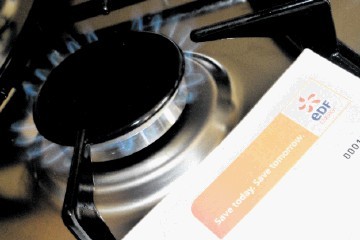
Around 11 million households across the country are set to see their energy bills cut by between £60 and £80 a year, according to experts.
The new price for the Government’s flagship price cap for homes on standard variable tariffs (SVTs) is due to be unveiled by regulator Ofgem on Wednesday.
It was raised by 10% in April to £1,254 a year for the average home.
But wholesale prices – the amount energy companies pay for gas and electricity – have fallen in recent months, and a cut of around 6% is expected.
Rik Smith, energy expert at uSwitch, said: “We’ve seen the wholesale market costs falling pretty steadily since the end of 2018 and expect a cut of between £60 and £80 – but we think it will probably be closer to £80.”
The prediction is similar to energy supplier E.ON, which reckons £70 will be knocked off the average SVT bills.
But Mr Smith did warn that any possible saving may not actually lead to an extra £80 in household pockets.
He explained that most energy suppliers, which charge customers via direct debit, tend to try to spread out the cost of a bill throughout the year, to avoid unexpected jumps.
Mr Smith said: “Is this move going to free up money for Christmas? The answer is no.
“The cost per unit may come down, but it will take time for these energy companies to review direct debits.
“So, if you’ve been paying £100 a month and you’re on an SVT, it doesn’t mean your bill will come down.”
The price cap was introduced under Theresa May, with the former prime minister promising to cut £100 off bills.
Critics suggested that the original cap level, which was introduced in January, was always too low and would have to rise.
They also accused Ofgem of setting the level too low to please the Government and hit Mrs May’s target, and warned that the cap might discourage customers from switching to a better deal.
Mr Smith said: “Some commentators might say there were tricks played in order to achieve the Government saving of £100.
“But the consequence of the price rise in April is that a lot of people got a shock. It hit everyone at the same time and lots of people have been galvanised into action.
“The danger is that those who are maybe not best placed to afford energy bills are lulled into a false sense of security when there’s savings of £300 for the sake of 10 minutes on a website.”
Any cut announced on Wednesday will be passed on to customers by October.
